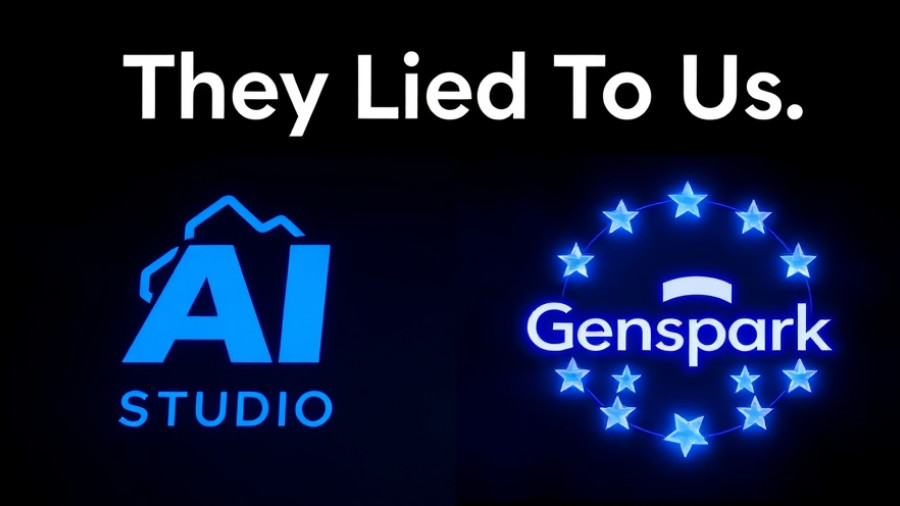
The Battle of AI Platforms: Genspark vs Google AI Studio
In the dynamic world of AI development, two platforms stand out due to their innovative capabilities that cater to different audiences. Genspark AI Developer 2.0 and Google AI Studio serve distinct needs—one aimed at non-technical users and the other at experienced developers—prompting us to ask: which should you choose?
In Genspark AI developer 2.0 vs Google AI studio, the discussion dives into how these innovative platforms cater to different audiences by scrutinizing their capabilities and practical applications.
Genspark: The Non-Coder’s Ally
Genspark AI Developer 2.0 has recently emerged as a game-changer by enabling individuals with zero coding skills to develop applications swiftly. It allows users to articulate their ideas, and the AI autonomously translates these concepts into functional software—eliminating the daunting barrier of coding.
The platform is designed for speed and simplicity. Users can easily convert ideas into applications integrated with GitHub, which is particularly beneficial for startup founders and creative individuals looking to prototype solutions without technical expertise.
Google AI Studio: Power at Your Fingertips
On the other hand, Google AI Studio caters to developers seeking robust capabilities. With its recent update featuring the Gemini 2.5 Pro model, it stands as one of the most powerful AI platforms available, offering advanced tools that handle multimodal tasks across text, images, code, and video.
Google’s infrastructure is solid and reliable, designed for those with the technical skillset to leverage its powerful AI models effectively. Advanced features like voice input, real-time dashboards, and fine-tuned API controls can help developers create sophisticated systems and applications. However, this power comes at the expense of a steeper learning curve.
Use Cases: Practical Applications of Each Platform
Both platforms shine in their unique ways. Genspark allows users to create practical applications like a custom CRM or booking system with minimal effort. In minutes, users can articulate their needs and watch the application materialize.
Conversely, Google AI Studio supports complex projects like AI assistants that analyze images or tools that generate marketing videos—making it perfect for ambitious developers looking to create deep, functional applications.
Weighing the Pros and Cons
When it comes down to ease of use and accessibility, Genspark is the clear winner for non-coders, providing a streamlined experience perfect for startups and non-technical users. However, for developers aiming for high-performance applications with proven AI models, Google AI Studio's capabilities far outweigh its challenges.
Yet, both platforms come with their share of caveats. From Genspark’s relative newness and lack of extensive public benchmarks to Google’s prominent learning curve, all users must remain vigilant—especially as both platforms utilize AI models that can produce unexpected outputs or biases.
The Future of AI Development
Looking forward, as both platforms evolve, we can anticipate even more groundbreaking applications. Genspark plans to enhance its capabilities and integrations, while Google continues to refine its multimodal experiences.
This rapid evolution signifies an exciting future where building applications might become accessible to everyone, turning ambitious ideas into reality much quicker than ever before. For now, users might find value in utilizing both—Genspark for quick prototypes and Google AI Studio for extensive and scalable projects.
In conclusion, the choice between Genspark AI Developer 2.0 and Google AI Studio ultimately depends on your skill level and project requirements. If you lean towards rapid prototyping, Genspark is your best bet. But for those keen on building detailed applications with powerful AI models, Google AI Studio is the way to go.
 Add Row
Add Row  Add
Add 




Write A Comment